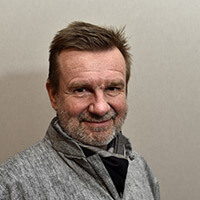Businesses, like individuals, evolve within a constantly changing environment. The only thing that is constant is change, an observation made two and a half thousand years ago and almost axiomatic in today’s world. Demography, technology, the markets: change affects every aspect of our lives and brings its own set of challenges. “What’s Next”, the 6th Forum which the Fondation de la Haute Horlogerie held in Lausanne, mid-November, set out to shine some light on what these changes imply.
Changing balance
First the markets: Stéphane Garelli, professor of world competitiveness at IMD, painted a gloomy picture of the consequences globalisation has had on the post-industrial world. Between 1980 and 2010, the United States, Europe and Japan invested some three thousand billion dollars in emerging economies, resulting in massive deindustrialisation in the “donor” countries, unprecedented wealth creation in the “receiver” countries, and mountains of cash accrued by global companies such as Apple, which is sitting on US$ 148 billion. Do heavily indebted states benefit in the form of tax revenues or investment-led job creation? Not so sure. France, for example, has chalked up a debt of two thousand billion euros. Servicing this debt accounts for 12% of the national budget; the unemployment rate is 8% while youth unemployment has hit 25.4%. The heart of the action is elsewhere, in these same emerging economies where tomorrow’s global companies are taking shape, and primary needs are still driving growth while closer to home the replacement economy is running out of steam.
For some, such as Google, the response to this new balance of power is non-stop innovation. According to Patrick Warnking, country director for Google Switzerland, innovation means new technologies that bring “smart” added value. He quoted some of the internet giant’s current projects such as glasses, cars and contact lenses as examples. Not forgetting its new internet platform that will anticipate users’ needs. “There are still five billion people in the world who are not connected,” said Warnking. One can imagine the potential this represents for a company such as Google. Or Apple, for that matter, whose connected watch, despite shaking up the horological scene these past months, lacks intelligence, like Google’s own device.
A longer view
The incursion of innovative electronics into time measurement has kicked off what many predict will be an epic battle to conquer the wrist, declared Elizabeth Paton, who is luxury correspondent for the Financial Times She quoted CitiGroup’s prediction that the smartwatch market will grow to some ten billion dollars over the next three years. Should Swiss mechanical watchmakers be concerned? Not necessarily, inasmuch as these are two different products, with distinct identities and most importantly in different price ranges. But as Paton pointed out, “anyone who thinks smartwatches are going nowhere has got it wrong. Over half the global population is under thirty, and this generation lives in a world they cannot imagine as anything other than connected. In this respect, these products are already part of their environment.”
By the same token, Hermès was one of the first luxury companies to sell its products online, on its website. Yet the firm looks towards a horizon that is far from the immediacy that governs our lives. “For Hermès, tomorrow means in ten or fifteen years’ time,” commented Axel Dumas, CEO of Hermès International, who sees no reason why taking such a long view should exclude innovation. For Hermès, this means creation. “By avoiding banalisation, we achieve radicality of style, that very particular relation to time past, present and future,” commented Dumas, for whom freedom is the most effective way to spark competitiveness: freedom to create, freedom to communicate, and freedom to act.
In praise of slowness
The fact remains that companies make these efforts first and foremost with the customer in their sights. And today’s customers, and those of tomorrow, are Millennials, the generation born between 1980 and 2000, and the population with the most purchasing power. In her analysis, Diana Verde Nieto, co-founder of Positive Luxury, described why they are a different type of consumer. As digital natives, they are accustomed to sharing, to connecting with others and seeking out new experiences. Companies that ignore this are treading dangerously.
These messages promise that if we set about it rightly, we can expect a bright tomorrow. But there is a hidden side of the coin: you have to be in it to win it. We must work faster, harder, longer; in a word, become part of the burn-out generation decried by Carl Honoré, author and spokesman for slowness. Honoré urges us to do not more but better. This means not only taking however long it takes but, more importantly, stepping off the treadmill to give ourselves the opportunity to take considered and therefore efficient action. Frédéric Lenoir, a disciple of Aristotle and Epicurus, addressed a similar line of thought: “To a certain degree, the search for happiness is incompatible with how we live today. There is no longer any room for introspection,” he said. “Achieving this balance takes time. Socrates said we must know ourselves. Only then can we discern the pleasures that coincide with the harmony we are searching for.” Something to consider, smartphone in hand.


















